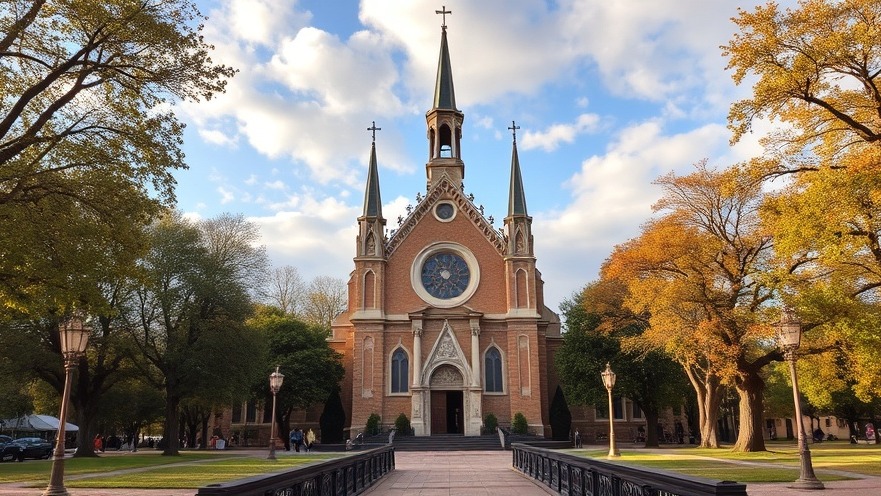
Religious Influence in Politics: A New Era Begins
The recent decision by the IRS to allow churches to endorse political candidates marks a significant shift in the relationship between religion and politics. This policy change not only empowers pastors but also opens the gates for congregations to actively participate in political discourses, a practice that has been largely restricted for decades due to the Johnson Amendment, which prohibited tax-exempt organizations from engaging in any political activities.
In Texas, a state renowned for its vast number of megachurches, this shift could alter the political landscape permanently. With over 200 megachurches, Texas stands at the forefront of this transformation, where religious leaders like Rep. Nate Schatzline are eager to take their influence to new heights.
Historical Context: Understanding the Johnson Amendment
To grasp the significance of the IRS's policy reversal, one must consider the origins of the Johnson Amendment. Passed in 1954, the amendment was designed to maintain the separation of church and state, particularly in the context of political campaigning. Legislative leaders like Lyndon B. Johnson feared that churches would sway elections using tax-exempt funds, thus establishing a precedent of political silence among religious institutions. For more than half a century, pastors have carefully navigated this legal landscape, often choosing to limit their involvement in political discussions for fear of losing their nonprofit status.
Current Events: What This Means for Texas
The implications of this policy change are immediate and profound. With the IRS's approval, Texas pastors are already rallying their congregations to embrace political engagement. Pastor Nate Schatzline, addressing members of the True Texas Project, expressed a compelling argument: “The government can’t stop the church from getting civically engaged.” As federal restrictions loosen, religious leaders are encouraged to become vocal advocates for political candidates that align with their values, setting off a chain reaction of activity in churches across the state.
Future Predictions: What Lies Ahead
As churches begin to engage in political endorsements, the potential for increased polarization is evident. Some experts predict that congregations may become battlegrounds for political ideologies, with pastors wielding considerable influence over their congregants' political beliefs. Ryan Burge, a political and religious expert, asserts that Texas will be the testing ground for various political strategies employed by churches, igniting debates on moral issues like LGBTQ+ rights and immigration. The consequences of this shift may redefine how we perceive the intersection of faith and political identity, contributing to a more divisive landscape.
Counterarguments: Concerns and Controversies
While many see this change as a positive development for civic engagement, others voice concerns. Critics argue that inviting political rhetoric into churches may detract from spiritual teachings, threatening the core mission of religious institutions. They contend that the potential for power imbalances within congregations is increased, as not all members may agree with the political views of their leaders. The fear is that divisions could arise within communities, leading to conflict and resentment.
Unique Benefits of Engaging in Politics for Churches
Despite these concerns, there are notable advantages to churches taking a stand on political issues. Empowering pastors to speak out promotes community engagement, and allows congregations to address issues that affect their lives directly. By endorsing candidates who resonate with their values, churches may play a crucial role in shaping policies that seek to enhance their communities' welfare.
Tools and Techniques: Navigating New Political Landscapes
As churches navigate this new political terrain, they must consider effective ways to engage their members. Fostering open discussions, providing educational resources, and encouraging critical thinking can empower congregants to form their own opinions on political matters. By creating forums for respectful dialogue, churches can help build an informed community resistant to polarization.
In conclusion, the IRS’s decision to permit churches to endorse political candidates is a watershed moment that could reshape the socio-political fabric of Texas. With the potential to mobilize voters and impact legislative outcomes, congregations stand to gain significant influence. Texans must brace for an era where faith and politics intertwine more than ever before. Whether this will lead to increased engagement or further division remains to be seen.
 Add Element
Add Element  Add Row
Add Row 



Write A Comment